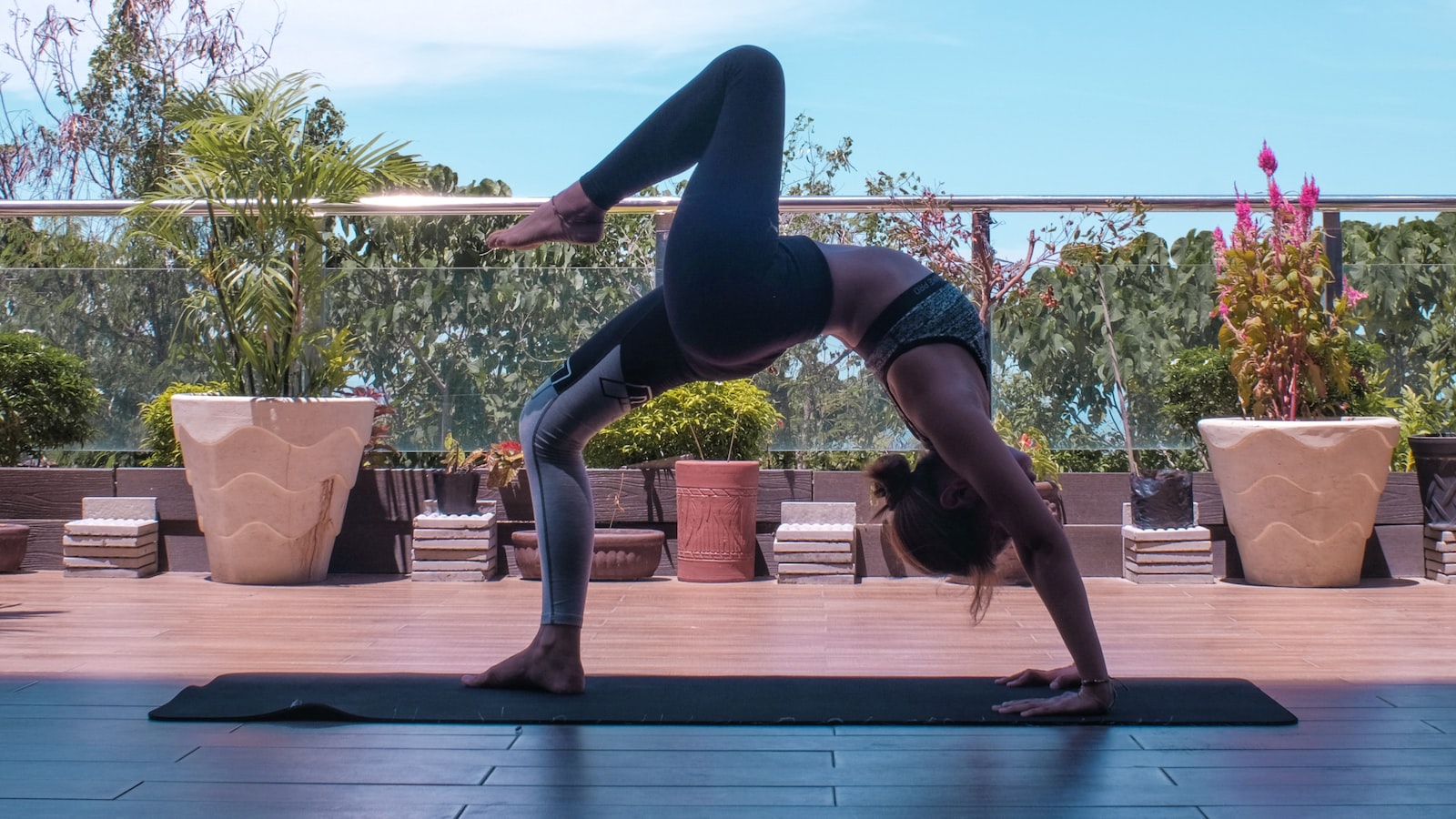
Fitness Basics: Why Exercise is Important
Getting in shape can seem overwhelming, so it’s important to start with the basics. Exercise is an essential part of any fitness program and can offer a range of health benefits. In this article, we’ll take a look at why exercise is important and provide you with the necessary knowledge to get started on the right foot. So read on to find out why regular exercise should be part of your routine!
List of Content
- 1. What is Exercise?
- 2. The Benefits of Exercise
- 3. Exercise for Mental Health
- 4. Exercise for Physical Health
- 5. Exercise for Life Longevity
- 6. Get Moving – Start Your Exercise Routine Now!
- You Ask, I answer

1. What is Exercise?
Exercise is any form of physical activity that comes with health benefits.
Types of exercise
- Aerobic exercise: Typically involves activities that involve larger movements over a period of time, like running or biking
- Strength training: Exercises used for the ever-important core and overall muscular strength, usually performed with weights or machines
- Flexibility: Stretches and exercises that increase a range of motion, allowing for improved mobility
- Stability: Workouts specifically designed to improve balance and prevent injuries
Benefits of exercise
- Increased energy and metabolism
- Reduced risk of chronic diseases, like obesity, type 2 diabetes, and heart disease
- Stronger joints and bones
- Enhanced mood and mental health
- Decreased stress
How to get started
Getting started with exercise is easy! First, figure out your goal: What do you want to accomplish? Once you have that figured out, then choose the type of exercise that fits that goal and start slowly. Listen to your body and don’t overdo it! Finally, set up a routine and stick with it. And don’t forget to have fun!

2. The Benefits of Exercise
- Feel-good Factor – One of the most obvious benefits of exercise is that it releases endorphins into your body which make you feel great! Exercise triggers a rush of positive hormones into your brain, and the effects can last long after you stop working out. Whether that’s a yoga class, going for a run or lifting weights, the end results are the same.
- Sharp Mind – It’s no secret that regular exercise can do wonders for your physical health, but did you know that it can also improve your mental acuity? All forms of exercise can help your memory and cognitive thinking – so hit the gym and get your brain thinking sharp!
- Sleep Improvement – Having trouble sleeping? Exercise can help. Studies have found that exercise increases the amount of time spent in deep sleep, making it easier for the brain and body to rest and recharge. So if you’re suffering from insomnia, try getting moving and feeling energised.
- Weight Loss – Exercise can help you shed excess pounds and keep it off. Exercise helps burn off calories and can lead to a healthy, sustainable weight loss over time when combined with a balanced diet and lifestyle changes.
3. Exercise for Mental Health
Exercise is one of the most effective ways to improve mental health. It stimulates the release of endorphins which act as muscle relaxants and can help decrease stress and anxiety. Regular exercise can also make you feel better about yourself and your capabilities.
Benefits to :
- Lowers stress and anxiety levels
- Releases endorphins to lift mood
- Boosts self-esteem
- Enhances quality of life
Any type of physical activity can be beneficial for mental health, including walking, running, weight training, or yoga. Even 10 minutes of moderate exercise, such as walking, can improve wellbeing. It’s important to create habits that are sustainable and enjoyable to ensure that you stick with them in the long-term.
It’s also beneficial to combine physical activity with mindfulness techniques. Such techniques can help to reduce stress, improve concentration, and be mindful of each moment. Mindfulness activities such as tai chi, yoga, and even walking can also help to increase energy levels and promote a sense of calm.
4. Exercise for Physical Health
Regular exercise can offer a range of benefits for physical health. From improved strength and endurance to better sleep and healthier weight, there’s no doubt that getting active has a positive effect on many facets of health.
Options
The type of exercise people choose to do could depend on a range of personal preferences. Those who want to exercise at home can opt for at-home activities like jogging on the spot, doing yoga, or using dumbbells. For those who prefer to exercise outside, activities like hiking, cycling, or running are a great choice.
Benefits
Regular exercise can bring a range of physical health benefits, including:
- Reduced risk of chronic diseases such as diabetes, heart disease, and some types of cancer
- Stronger muscles and bones
- Improved physical strength, balance, and agility
- Reduced stress and strengthened mental health
- Improved flexibility and posture
Guidelines
When it comes to how much exercise to aim for, the Centers for Disease Control and Prevention (CDC) recommends adult adults should aim for at least 30 minutes of moderate-intensity physical activity on most days. However, the more active someone is, the better their health and wellbeing could be.
5. Exercise for Life Longevity
1. Walking
Walking is a low-impact exercise that can be beneficial for all ages. It’s an activity that can easily be done both indoors and outdoors and for any length of time. Research has found that walking more than 5 miles per week can prolong life expectancy, and this can be broken up in smaller increments to meet everyday needs.
2. Yoga
Yoga has been linked to longer life expectancy due to the calming nature of the practice. It is a type of exercise that helps to strengthen muscles and improve flexibility while reducing stress. It can also be adapted to different levels of physical ability, thus making it accessible to all ages.
3. Strength Training
Strength training is another great option for longevity. It can be done using bodyweight exercises, free weights, machines, bands, kettlebells and other equipment. Regular, consistent strength training helps to develop muscular strength and endurance that will reduce the risk of falls later in life.
4. Cardiovascular Training
Cardiovascular training is also beneficial for longevity. This type of exercise boosts oxygen to the heart and lungs, increasing endurance and improving endurance. Activities like running, swimming, cycling, skiing, and rowing are all great for strengthening the heart and improving overall health.
Incorporating a variety of exercises into your routine can help to significantly improve your life expectancy. Regular exercise will keep the body strong and resilient in the long run and can help you to live a longer, healthier life.
6. Get Moving – Start Your Exercise Routine Now!
Now that you know how important physical activity is, it’s time to get started. Here are a few tips to get moving and start your exercise routine:
- Set a goal that is realistic and achievable. It may be to run for 5 minutes every day or to lose one pound a week.
- Set a schedule in your calendar to make sure you’re carving out time for exercise. You should aim to exercise around the same time every day, even if it only 10 minutes at a time.
- Start small and build up over time. Don’t try to do too much all at once. Gradually increase the intensity of your workouts gradually over time.
When beginning your exercise routine start with light physical activity like walking, jogging, cycling, swimming, and then gradually move onto more intense activities such as resistance exercises and high-intensity interval trainings. Make sure to consult a fitness professional to get proper guidance.
Remember, consistency is key. Stick to your routine and don’t give up until you reach your goal. In the beginning, it might be difficult, but if you stick to it, you’ll start to enjoy it and there’s no better feeling than the endorphin rush after a good workout!
You Ask, I answer
Q: What is the importance of exercising?
A: Exercising is important for many reasons, including increased strength, better mental health, and improved overall physical wellbeing. Regular exercise can also reduce the risk of certain chronic diseases, improve your energy levels, and help you maintain a healthy weight.
Q: How much exercise do I need?
A: That depends on your individual fitness goals, but everyone should strive for at least 150 minutes of moderate exercise—such as walking or cycling—every week. Of course, the more active you are, the better, so don’t be afraid to challenge yourself to break a sweat more often.
Q: Are there good exercises that don’t require a gym membership?
A: Absolutely! You can get a great workout at home—all you need is some exercise equipment, such as a set of weights, or a yoga mat. Or, if need space or fresh air, many outdoor activities such as running, biking, or hiking are excellent options.
Exercising regularly is one of the best things you can do for your health and wellbeing. Regular exercise can keep you looking and feeling your best while having numerous physical and mental health benefits. Carve out a few minutes each day to get in some physical activity and you will soon start seeing the positive effects in your life. Remember, it doesn’t have to be anything crazy to be effective; even something as simple as going on a ten-minute walk can make a big difference. So get moving and reap the rewards exercise has to offer!


